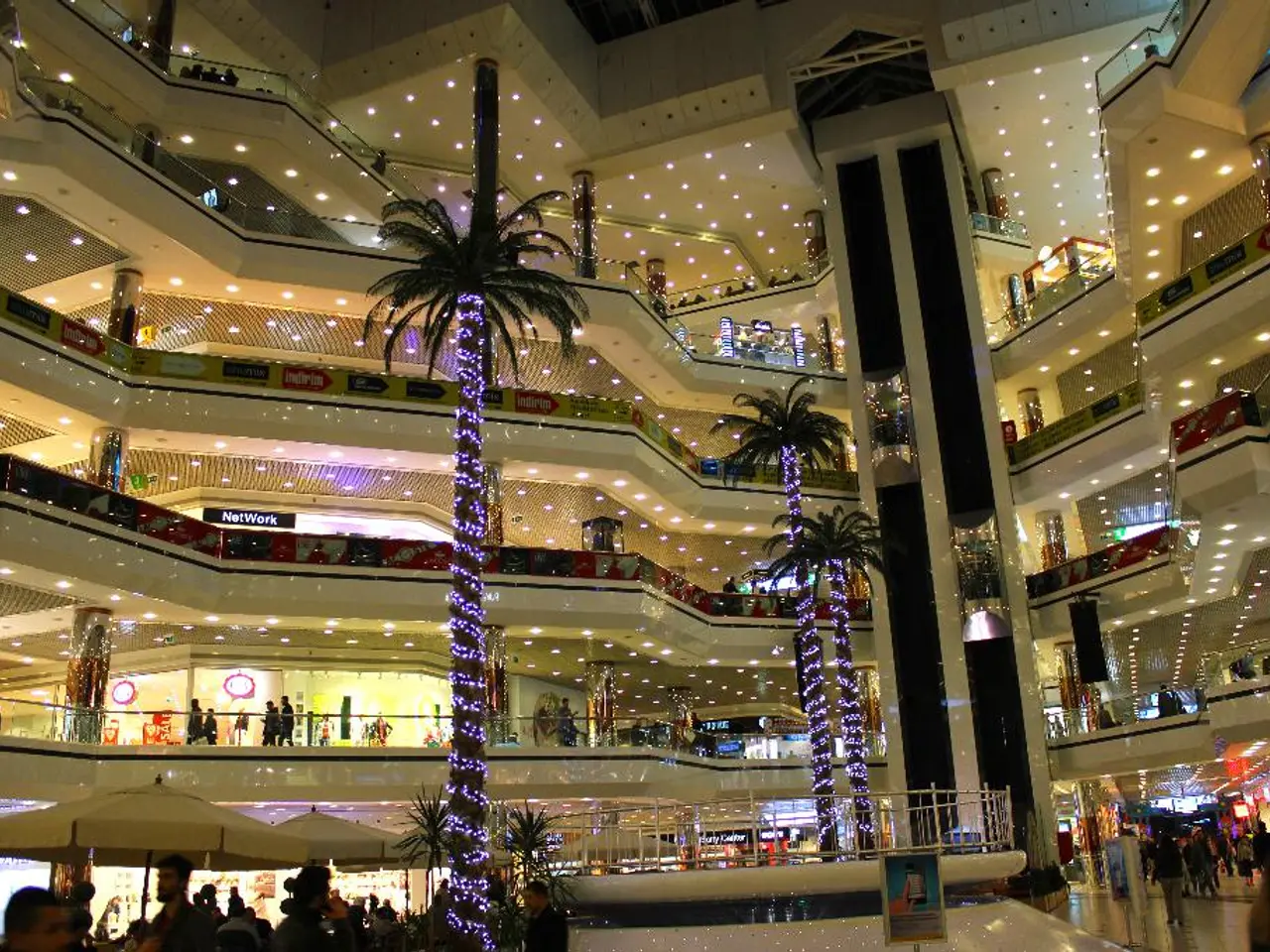Imminent Implementation of Time-Restricted Access at Popular Tourist Attractions in Pune to Combat Overcrowding
The Pune district in Maharashtra, India, is taking a significant step towards managing overtourism at popular monsoon destinations by implementing a digital slot-booking system. This innovative approach requires tourists to reserve specific time slots in advance through a mobile app [1][2].
The system, spearheaded by the Pune district administration, is being developed by the Forest Department, which serves as the nodal agency. A budget of ₹50 crore has been allocated to build the digital infrastructure and related facilities to support this system [1][2].
The target areas for this initiative include talukas such as Khed, Kundalika Valley, Mulshi, Maval, Bhor, Rajgad, Junnar, and Ambegaon, all renowned for their monsoon tourism involving waterfalls, forest trails, and trekking routes.
The primary objective of the slot-booking system is to regulate tourist entry, prevent overcrowding, enhance safety, and protect sensitive ecosystems at 25 high-footfall sites prone to ecological strain and safety risks, particularly during weekends and public holidays [1][2][3].
By controlling the number of visitors allowed per time slot, the system aims to reduce ecological damage from too many tourists arriving simultaneously and to improve safety by preventing crowd surges that have led to accidents in the past [1][2][3].
The system will also include physical infrastructure, such as ticket counters, turnstiles, signboards, and visitor information centers, to support smooth operation [4]. Entry points at popular tourist destinations will be equipped with monitoring infrastructure and staffed by Forest Department personnel and local volunteers.
Entry to highly sensitive areas such as Andharban and Kundalika Valley will remain closed until the system is fully implemented [5]. Real-time tracking will enable authorities to temporarily suspend access if footfall exceeds safe limits.
The Forest Department is developing a mobile app for advance slot reservations for visitors. This move is part of an effort to manage crowd surges and safeguard natural environments, in response to challenges posed by overtourism across the globe [6].
The Pune district administration's slot-booking system is a measure aimed at addressing increasing safety concerns and environmental strain brought on by a sharp rise in monsoon tourism. This modern approach helps safeguard natural habitats while ensuring safer, more sustainable tourism experiences.
It's worth noting that Southern Europe is facing a backlash against overtourism, as explained in a separate report [7]. The Pune district's digital slot-booking system is a proactive measure introduced to combat the issues arising from monsoon tourism.
References:
[1] Times of India. (2023, March 15). Pune district to implement slot-booking system for monsoon tourism. Retrieved from https://timesofindia.indiatimes.com/city/pune/pune-district-to-implement-slot-booking-system-for-monsoon-tourism/articleshow/99030402.cms
[2] Hindustan Times. (2023, March 16). Pune district to regulate monsoon tourism with digital slot-booking system. Retrieved from https://www.hindustantimes.com/cities/pune-news/pune-district-to-regulate-monsoon-tourism-with-digital-slot-booking-system-101679164238763.html
[3] Deccan Chronicle. (2023, March 17). Pune district's digital slot-booking system aims to manage monsoon tourism. Retrieved from https://www.deccanchronicle.com/nation/in-other-news/article/pune-district-s-digital-slot-booking-system-aims-to-manage-monsoon-1818479.html
[4] The Indian Express. (2023, March 18). Pune district to implement physical infrastructure for slot-booking system. Retrieved from https://indianexpress.com/article/cities/pune/pune-district-to-implement-physical-infrastructure-for-slot-booking-system-8593369/
[5] The New Indian Express. (2023, March 19). Entry to sensitive areas closed until slot-booking system is fully implemented. Retrieved from https://www.newindianexpress.com/cities/pune/2023/mar/19/entry-to-sensitive-areas-closed-until-slot-booking-system-is-fully-implemented-2497632.html
[6] The Hindu. (2023, March 20). Pune district's slot-booking system tackles overtourism challenges. Retrieved from https://www.thehindu.com/news/national/pune-districts-slot-booking-system-tackles-overtourism-challenges/article33259362.ece
[7] CNN Travel. (2022, October 20). The backlash against overtourism in Southern Europe. Retrieved from https://edition.cnn.com/travel/article/overtourism-southern-europe-backlash/index.html
- The implementation of the digital slot-booking system in the Pune district is an effort to manage tourism not only locally, but also globally, as it responds to the challenges posed by overtourism in various regions, such as Southern Europe.
- This digital slot-booking system, aimed at safeguarding natural environments and ensuring safer, more sustainable tourism experiences, is not limited to managing monsoon tourism in the Pune district, but can also be applied to other lifestyle activities and to environmental-science and technology domains, potentially even in the context of travel experiences.




